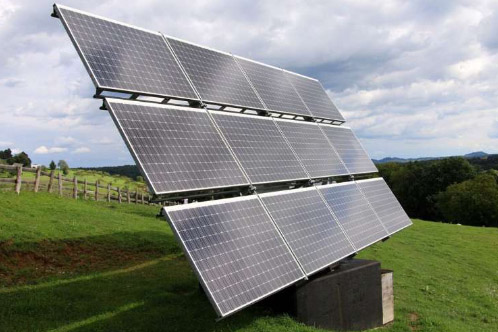Scientists led by researchers at Oregon State University have developed a new electrolyte that increases the efficiency of zinc metal anodes in zinc batteries to nearly 100%.
The study is part of ongoing global research into new battery chemistries that can store renewable solar and wind energy on the grid for use when the sun isn’t shining and the wind isn’t blowing. Batteries store electricity in the form of chemical energy and convert it into electrical energy through a reaction.
All batteries have two electrodes, the anode, where electrons flow into the external circuit, and the cathode, which receives electrons from the external circuit, and an electrolyte, a chemical medium that separates the electrodes and allows ions to flow between them. Relying on safe and abundant metals, zinc-based batteries have high energy densities and offer grid energy storage alternatives to the widely used lithium-ion batteries, which rely on shrinking supplies of rare metals such as cobalt and nickel to produce.
The cost of power supplied from storage facilities constructed with zinc batteries can only compete with power from fossil fuels if the batteries have long lifespans of thousands of cycles, Ji said. Coulombic Efficiency or CE is a measure of how well electrons move in a battery and is the ratio of the total charge drawn from the battery to the charge put into it for a full cycle.
Source: https://techxplore.com/news/2023-03-electrolyte-enables-high-efficiency-safe.html
Date: MARCH 27, 2023

